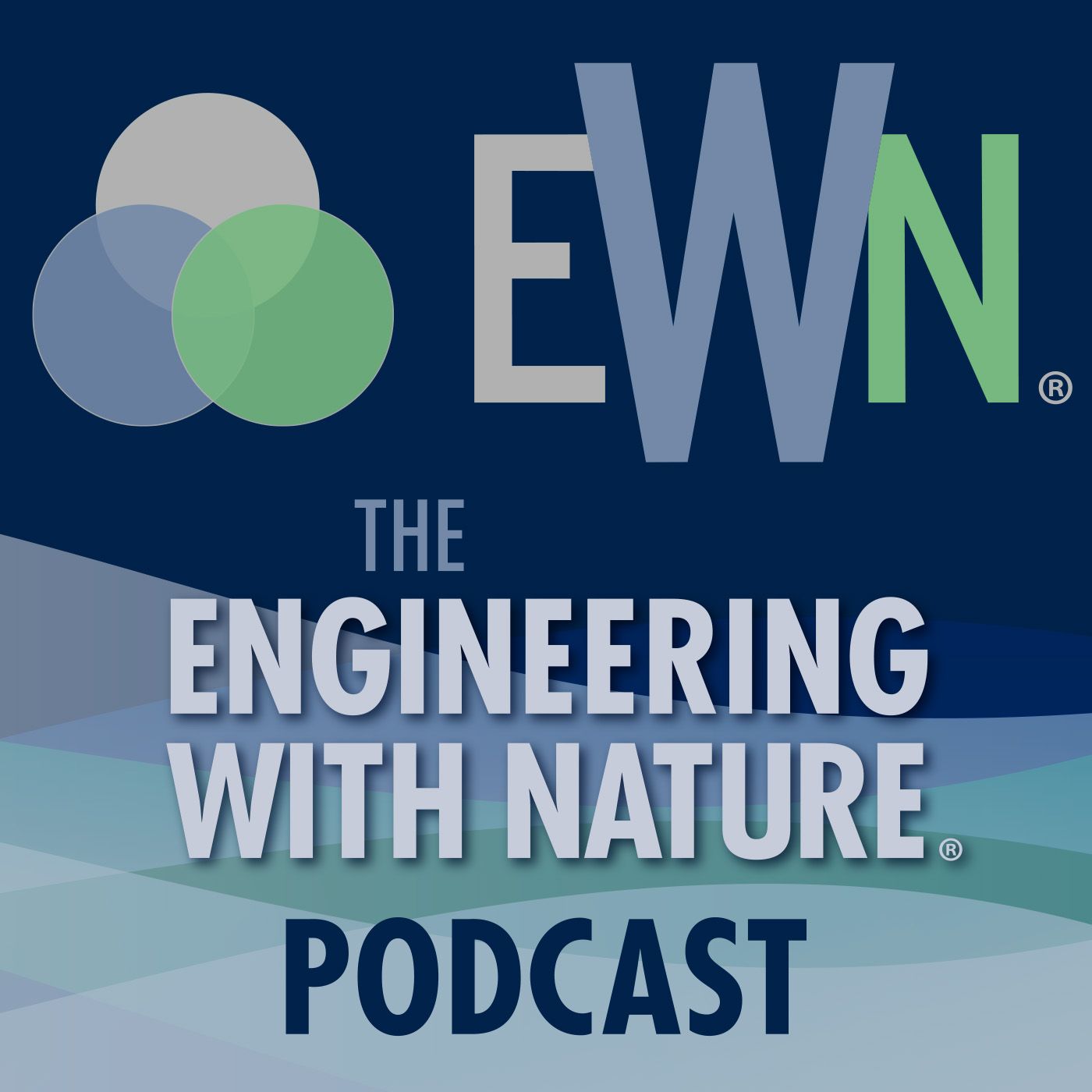A Conversation with Passionate Dune Stewards
Description
If you've ever walked along a beach, you’ve likely noticed the dunes, the mounds of sand that have been formed by the wind. But have you ever thought about what those dunes do and how important they are? Perhaps not; our guests certainly have. In Season 6, Episode 7, host Sarah Thorne is joined by cohost Amanda Tritinger, Deputy Lead of the Engineering with Nature Program, and her US Army Corps of Engineers (USACE) colleagues Duncan Bryant, Research Hydraulic Engineer, and Nick Cohn, Research Oceanographer. All three are affiliated with the Coastal and Hydraulics Laboratory at the USACE Engineer Research and Development Center. They’re passionate about “dune stewardship,” protecting and restoring the dunes that create resilience for coastal communities. As Amanda describes it, “People tend to overlook dunes and the role they play in the defense of our coastlines during hurricane seasons.”
Duncan explains that dunes are formed by a combination of sand, wind that shapes the sand into mounds, and vegetation. They’re much more complicated than just the mounds of sand we see. Dunes are naturally very dynamic. They can form and grow. They can be eroded. They can shift. Nick adds: “A lot of these storms in the Outer Banks and elsewhere where we have big wind events during storms actually grow dunes pretty substantially, but what we hear in the news all the time is how storms erode dunes. That’s why they’re so complicated. Sometimes it’s just about the details; if there was one foot more of storm surge, that dune would get eroded out. So, we do lots of research both in the field and the laboratory and with models trying to understand what details matter about our prediction of dunes.”
Dunes are a critical nature-based solution. As Nick explains, “Dunes serve as a topographic high that prevents high water from flooding people’s property and critical infrastructure. And they’re a really cost-effective, natural form of infrastructure to prevent flooding. As we get through the end of hurricane season, I think we always try to make the case that dunes are a valuable form of coastal protection that can be put almost anywhere throughout the world, without hard structural solutions.”
Amanda underscores the potential value of dunes for coastal resilience: “I think expanding the use of dunes is an exciting prospect. Everybody in the coastal community has some major storm event, some hurricane, that sticks in their mind. For me, it was Hurricanes Matthew and Irma. For both, I was in northeast Florida, and we did forensic studies before and after each of those storms. You could walk up and down the coastline and just see the difference. The communities that had older, more natural dune systems got out almost unscathed, whereas the communities that had newer dunes or no dunes saw a lot more damage after the storms.”
Amanda’s call to action speaks to her passion as a dune steward: “Understand the dunes. Take the time to learn the dune story. If you go to the beach and you appreciate the water, that magical place where the water meets the land, where we get to touch the rest of the world, know the story of the dune. It provides that ecological benefit. It takes care of the communities behind it. It’s dynamic. It’s exciting. It’s doing its job if it’s disappearing and it’s doing its job when it builds itself up. Just appreciate the dunes when you’re out there. I just think if more people knew the dunes story and told each other about it and knew just how magical that thing they walk over on the way to the beach was, that that would just be a win in itself.” For more information and resource links, please visit the EWN Podcast page on the EWN website at https://www.engineeringwithnature.org/
• a href="https://www.linkedin.com/in/amanda-tritinger-963123211/" target="_blank" rel="noreferrer...
More Episodes
In Season 8, Episode 3, host Sarah Thorne and Amanda Tritinger, Deputy National Lead of the Engineering With Nature (EWN) Program, US Army Corps of Engineers (USACE), are joined by Brian Davis, Associate Professor of Landscape Architecture at the University of Virginia (UVA), and Cathy Johnson,...
Published 10/22/24
Published 10/22/24
In Season 8, Episode 2, host Sarah Thorne and Jeff King, National Lead of the Engineering With Nature (EWN) Program, USACE, welcome back Dr. Christopher Lemon, a physician and Assistant Professor, Department of Emergency Medicine at Johns Hopkins Medicine; Faculty Codirector of Clinical Programs...
Published 10/08/24


